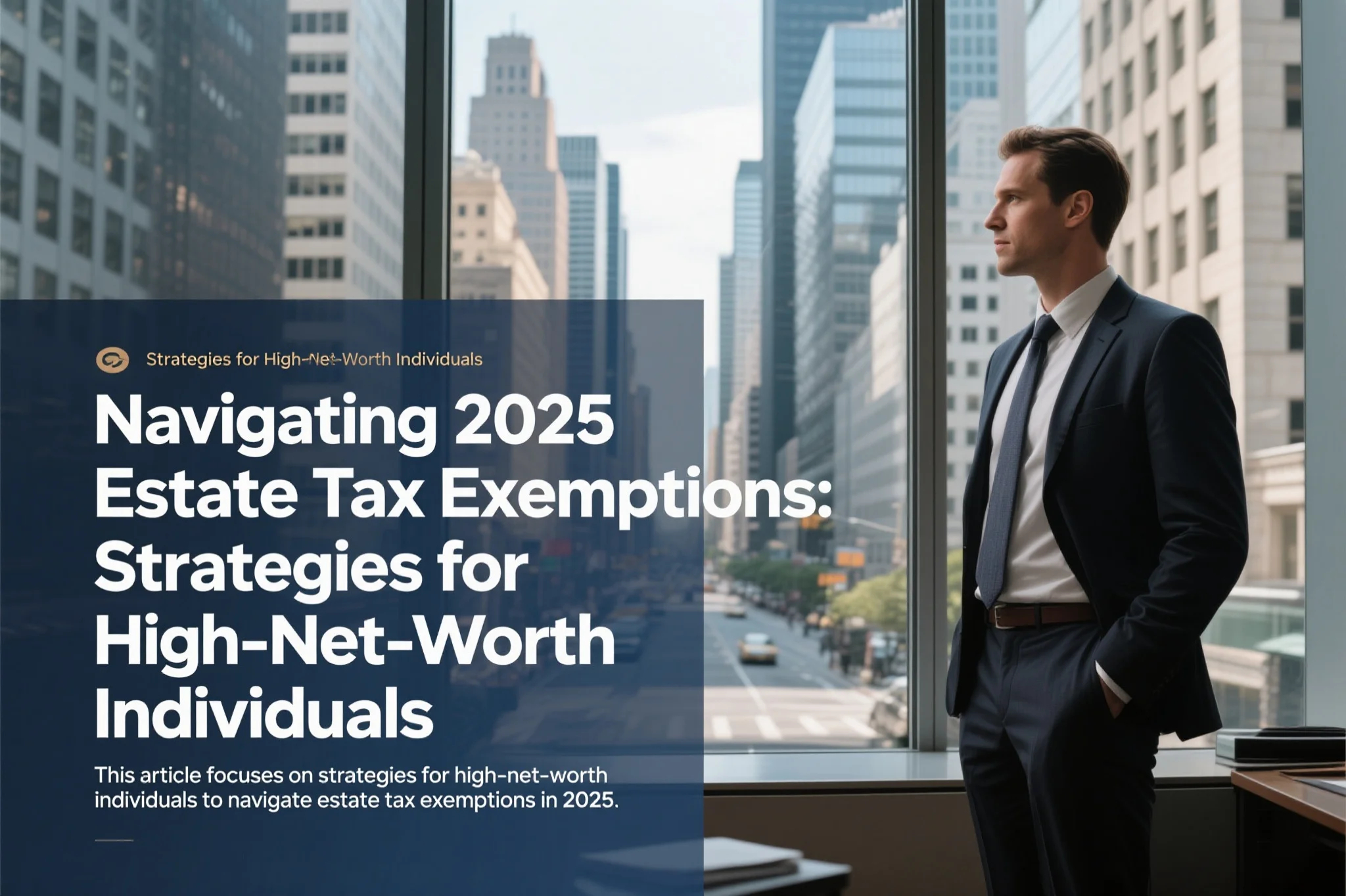
Understanding Estate Tax Exemptions for Wealth Preservation
For high-net-worth individuals, navigating the complexities of estate planning requires careful consideration of current and future estate tax exemption thresholds. The 2025 changes present both challenges and opportunities for those looking to protect their legacy while minimizing tax liabilities. Proper wealth preservation strategies must account for these shifting regulations to ensure maximum benefit for future generations.
One of the most effective tools in modern estate planning is the irrevocable trust, which offers numerous advantages for asset protection while complying with current tax codes. These legal structures allow families to transfer wealth outside their taxable estates while maintaining certain degrees of control over the assets. The key lies in understanding how different trust structures interact with the anticipated changes in exemption amounts and tax rates.
Strategic Use of Irrevocable Trusts in Estate Planning
When considering irrevocable trust options, high-net-worth individuals must evaluate several factors including the current value of their estate, projected growth, and family circumstances. These trusts serve as powerful vehicles for wealth preservation, particularly when established during periods of favorable estate tax exemption rules. The irrevocable nature of these arrangements provides certainty in an otherwise unpredictable tax landscape.
Beyond basic asset protection, sophisticated trust structures can incorporate generation-skipping provisions, charitable components, and specialized investment strategies. Each variation carries distinct implications for how assets are protected and distributed. Working with experienced estate planners becomes crucial when navigating these complex instruments, especially as the 2025 changes approach.

Maximizing Asset Protection Through Advanced Strategies
For families focused on comprehensive asset protection, simply relying on basic estate tax exemption amounts may prove insufficient. Advanced techniques often combine multiple legal structures to create layered protection for different asset classes. These might include family limited partnerships, offshore trusts, or domestic asset protection trusts, all working in concert with traditional irrevocable trust arrangements.
The interplay between these various tools becomes particularly important for high-net-worth individuals with complex portfolios including real estate, business interests, and international assets. Proper structuring can mean the difference between significant tax savings and unnecessary erosion of family wealth. As part of a complete wealth preservation strategy, these approaches should be reviewed regularly to account for legislative changes and personal circumstances.
Anticipating the 2025 Estate Tax Landscape
With the scheduled reduction in estate tax exemption amounts approaching, forward-thinking individuals are taking proactive steps to lock in current benefits. This involves more than just establishing basic irrevocable trust arrangements – it requires comprehensive analysis of how different assets might be affected by the changing rules. For many high-net-worth individuals, this means accelerating certain wealth transfer strategies that might become less advantageous after 2025.
The potential impact on wealth preservation efforts cannot be overstated, particularly for families with substantial illiquid assets or complex business structures. Proper planning now can help mitigate the effects of reduced exemptions while maintaining robust asset protection measures. This often involves balancing current gifting strategies with long-term planning objectives to create optimal outcomes regardless of how the tax landscape evolves.
Integrating Business Succession with Estate Tax Planning
For entrepreneurially-minded high-net-worth individuals, business succession planning must be carefully coordinated with estate tax exemption strategies. The value of privately-held businesses often represents a significant portion of taxable estates, making their proper handling essential for effective wealth preservation. Specialized irrevocable trust structures can facilitate smooth transitions while minimizing tax consequences.
These arrangements frequently incorporate buy-sell agreements, valuation discounts, and phased transfer mechanisms to optimize both business continuity and asset protection objectives. The approaching changes to exemption amounts make timely action particularly important, as certain planning opportunities may disappear or become less favorable after 2025. Business owners should consult with specialists who understand both the operational aspects of their enterprises and the nuances of estate tax regulations.
Philanthropic Strategies Within Estate Tax Planning
Charitable giving represents another powerful tool for high-net-worth individuals seeking to optimize their estate tax exemption utilization while supporting meaningful causes. Various philanthropic vehicles can be structured to complement broader wealth preservation goals, often through specialized irrevocable trust arrangements. These approaches allow families to reduce taxable estates while creating lasting social impact.
The most effective charitable strategies provide multiple benefits, including current income tax deductions, potential avoidance of capital gains taxes, and removal of assets from taxable estates. When properly structured as part of comprehensive asset protection planning, these techniques can significantly enhance overall wealth transfer efficiency. The anticipated changes to exemption amounts make 2024 a particularly opportune time to evaluate and implement such strategies.
International Considerations for Global Families
For high-net-worth individuals with international connections or assets, estate planning becomes exponentially more complex. The interaction between U.S. estate tax exemption rules and foreign tax regimes requires specialized knowledge to ensure proper wealth preservation across jurisdictions. In these cases, traditional irrevocable trust structures may need to be supplemented with international solutions.
These might include offshore trusts, foreign holding companies, or treaty-based planning strategies designed to optimize asset protection while minimizing global tax liabilities. The approaching changes to U.S. exemption amounts add another layer of complexity for globally mobile families, making comprehensive cross-border planning essential. Special attention must be paid to reporting requirements, anti-deferral rules, and the tax treatment of foreign trusts under U.S. law.
Implementing a Holistic Approach to Wealth Transfer
The most successful wealth preservation strategies for high-net-worth individuals integrate multiple techniques to address all aspects of their financial picture. This goes beyond simply maximizing estate tax exemption usage to include income tax planning, investment strategy coordination, and family governance considerations. Sophisticated irrevocable trust arrangements often form the foundation of these comprehensive plans.
By viewing asset protection as part of a larger wealth management framework, families can create more resilient and adaptable strategies. This becomes particularly important in anticipation of the 2025 changes, as static approaches may prove inadequate in the face of shifting tax policies. Regular reviews with a team of trusted advisors can help ensure that planning remains aligned with both personal objectives and the evolving regulatory environment.